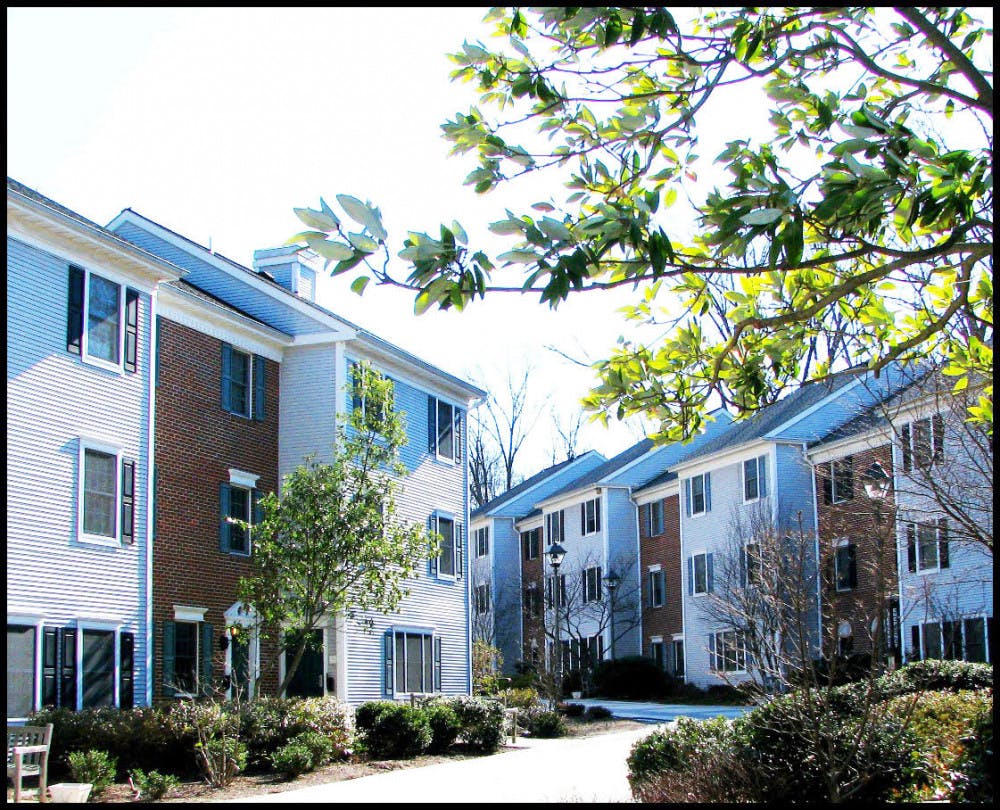By Patricia Nguyen
Signal Contributor
Whether you’re looking for a spot in a specific dorm or trying to get all your friends in the same living space, housing selection can be hectic. What makes the system especially frustrating is the lack of a streamlined choice to live with friends of different legal sexes. The majority of the College’s dorms are co-ed, but the rooms themselves are gender-specific, and the current system locks students’ rooming selection to their assigned gender. In the Townhouses, floors are even segregated by gender.

My group of friends of mostly girls and I wanted to have one or two of our guy friends live with us in a Townhouse. When housing selection came around, we could select rooms for female-locked floors but could not place male friends on the other floors of the Townhouse. Our male friends had a couple options – they could wait for their housing selection time slot, and cross their fingers that those beds wouldn’t be taken, or select another townhouse and hope to switch into ours later on. This sort of scenario tends to get chaotic and I’m sure that, every year, requests to Residential Education and Housing pile up.
Another scenario where this becomes an issue involves rooming in a suite or apartment. These spaces only share common areas like a bathroom and a living room — all living spaces have separate bedrooms. Even so, students still cannot live with friends of the opposite sex because the entire space is reserved for either males or females.
A while back, a friend of mine had to make a specific request to switch his gender from female to male in the housing system, which was a temporary exception just for the summer term in order to live with other men during the Mentored Undergraduate Summer Experience program. He had to go through special accommodations to achieve this arrangement, and shouldn’t the switch be made permanent since his new gender identity is not a temporary decision?
These disservices suggest that the College should make gender inclusive housing designations an option on a default same-sex designation. On the application for next year’s housing, the rooming survey will ask about the usual topics, such as when you sleep and if you would allow guests. An additional question should be added that asks whether or not a student would feel comfortable living with someone of a different sex. Answering “yes” to this question should not keep you out of a same-sex room – it opens up all rooms in co-ed dorms for both same-sex roommates and roommates of different genders.
In all cases, students should also be able to view the names of those who have already selected a particular living space when deciding where to live. This common-sense safety measure allows students to avoid those with whom they may have had previous conflict. This new option would give students more freedom and less stress during the housing selection process. Gender inclusive housing also addresses the safety concerns of the transgender community.
Under the current system, students of different legal sexes must specifically opt to live together in the same house, apartment or suite using a separate form linked to the College’s housing website. Opening up the opportunity for a gender-neutral designation to all spaces would alleviate the distress and alienation faced by transgender students.
In 2019, it doesn’t seem too unattainable for friends of different genders to live together — students are already embracing this concept in off-campus housing. People need to become more understanding of gender inclusivity and Residential Education and Housing is a great way to start implementing this change. It may be time for more members of the campus community to embrace change in the College’s housing process.
Students share opinions around campus?
"Should on-campus housing be more gender inclusive?"

"I think people of different genders can live on the same floor but not in the same room."

"Yes, we are all adults and of a mature age. Students should be able to live with whoever they want."










